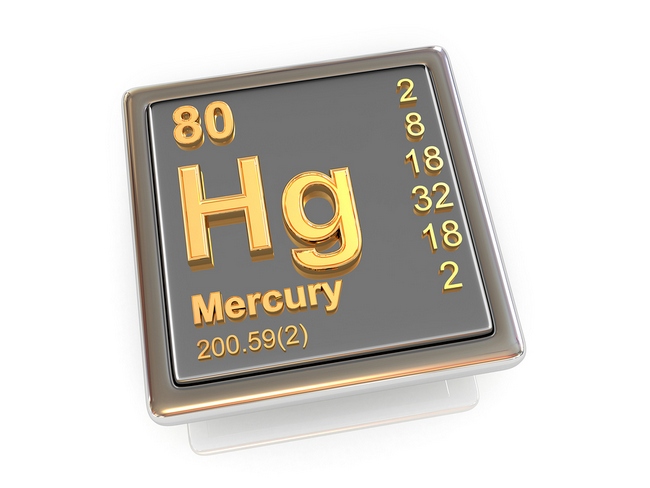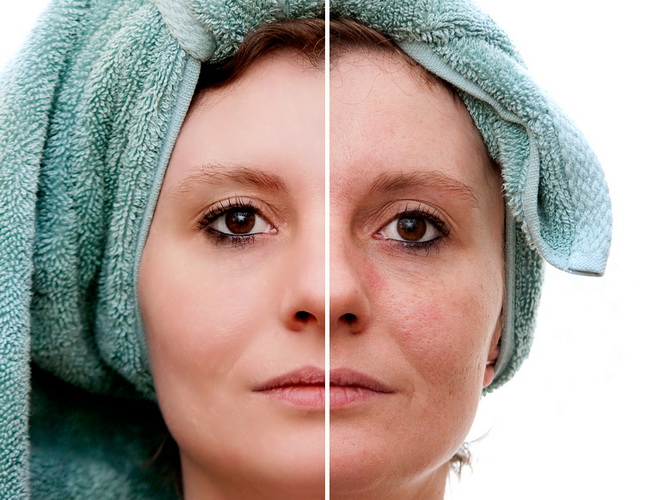- Make It Yourself Lavender Heart-Shaped Bath Bombs!
- 20 Things You Never Knew About “Down There”
- 12 Best Foods For Those Suffering From Arthritis Pain
- 12 Personal Hygiene Mistakes Almost Everyone Makes (Mom Never Told You About #4!)
- 15 Medicinal Plants And Herbs From The Cherokee People
- 12 Mind-Blowing Benefits Of Drinking Coconut Water During Pregnancy
- 12 Outstanding Winter Foods That Won’t Fatten You Up Like A Christmas Turkey
Top 10 Health Benefits Of Bentonite Clay (#6 Is Simply Mind Blowing!)

Photo credit: bigstock.com
If you are interested in one of the most inexpensive and naturally effective means of detoxifying the body, as well as the ability to heal different part of the body, then you will want to read this article about bentonite clay.
Bentonite is a type of clay is created from volcanic ash that has been broken down by water. This clay has a powerful negative ionic charge, which means that it attracts all substances with a positive ionic charge. Items that have a positive ionic charge are bacteria, toxins, and heavy metals such as mercury. Items with a positive ionic charge stick to bentonite clay much in the same way that two magnets will stick together. Since our bodies cannot absorb clay, the clay, along with the toxins it has absorbed, is removed from the body.
If you have ever looked at the oil in your car and realized that it was dirty and needed changing, you understand the same way our bodies need to be “cleansed” of the toxins they absorb. Bentonite clay is one of the best ways to do exactly this. When mixed with water, this clay expands like a huge, porous sponge, absorbing toxins that are drawn to its negative charge. The active ingredient in bentonite clay is hydrated aluminum silicate. It also has healthy levels of iron, magnesium, silica, and calcium. It is these ingredients that cause this type of clay to be called “healing” clay.
Because this clay has a type of electrical charge, never store it in a metal container or stir it with a metal spoon. Good quality bentonite clay is either cream or green in color. White bentonite clay should not be used as it is not true bentonite.
Bentonite clay has been used for thousands of years and although scientists are trying to play catch up and do more research, there is plenty of research available to prove that this is one of the best ways to remove toxins from the body. It also aids in supporting the immune system, the improvement of digestion, and much more.
Want to know more about what this clay can do for you? Keep reading!
Continue to Page 2

Photo credit: bigstock.com
1. Fights Environmental Toxins
VOC (volatile organic compounds) is a term that describes the wide assortment of toxic chemicals emitted from things like paint, cleaning supplies, permanent markers, building materials, plastics, pesticides, fertilizers, dry cleaning, and literally hundreds of everyday items with which we come into contact every single day. Breathing in the fumes from these chemical compounds is common and simply cannot be avoided entirely — unless you live on a remote mountaintop. Bentonite clay absorbs these VOCs, which can reduce levels of exposure to these carcinogens.
2. Fights Dietary Toxins
Aflatoxin is a mold-like substance that has a tendency to grow in a wide variety of food crops such as peanuts and corn. You might have heard stories on the news lately about people being poisoned by aflatoxin found in peanut butter and cooking oil. Research has shown that even small amounts of this dangerous mold can interfere with our immune system. Aflatoxins can also damage our livers and might even cause liver cancer. Studies done with lab animals have shown that bentonite clay can reduce the risk of damage by consuming aflatoxins.
3. Supports the Immune System
Studies with lab animals have shown that bentonite clay can strengthen the immune system. One study involving chickens found that when they were fed corn that had aflatoxins, their immune systems were dealt a heavy blow, leaving them vulnerable to numerous diseases. The same chickens were then given bentonite clay, and their immune systems immediately responded favorably and the aflatoxins effects were significantly suppressed. Although there needs to be more studies conducted involving humans, initial studies show that this clay can be a simple and effective way to support and protect the immune system.
Continue to Page 3

Photo credit: bigstock.com
4. Removes Heavy Metals
For removing heavy metals from the body there is perhaps nothing better than bentonite clay. The most damaging of all toxic metals are lead, benzene, mercury, and cadmium. All of these metals are found in many types of processed foods, especially those containing high fructose corn syrup. Heavy metals are also found in building materials, our everyday environment, soil, and drinking water. Studies have found that bentonite clay binds to and removes heavy metals from the body.
5. Cleanses The Colon
As bentonite clay absorbs the toxins and heavy metals from the body, it also absorbs a great deal of fluid. Since our bodies cannot absorb this clay, it will remove it from the body via the colon. This will help cleanse the colon as the clay passes through, taking any excess waste and toxins that were in colon with the clay and other toxins.
6. Removes Fluoride
Although many of us try to avoid fluoride whenever possible, the fact is that we can consume it without even being aware of it. Additionally, some of us consumed fluoride through water, dental products, or even at the dentist’s office before we were aware of the dangers. How to remove fluoride from our bodies has been a dilemma for some time. One study recently found that bentonite clay, especially when combined with magnesium chloride, reduces the fluoride in water. Bentonite clay can help work as a natural means of water filtration, perhaps in the near future. For now, bathing in bentonite clay can pull toxins right out through the skin. You can also mix some bentonite clay with a bit of water, and apply this paste to your feet. Allow to sit for 30 minutes to let the clay to remove toxins such as fluoride right from the body. Repeat this procedure twice a month for best results.
7. Prevents Allergies
Allergic reactions in the body are triggered when the immune system is stimulated by something like pollen, and histamines are released. When the liver is overburdened by toxins, it cannot release sufficient amounts of antihistamines to fight this overstimulation of the immune system. By cleansing the liver of toxins and metals, bentonite clay can help to restore the liver to its proper function and naturally relieve allergic reactions.
Continue to Page 4

Photo credit: bigstock.com
8. Increases Circulation
By adding bentonite clay to your bath, you can improve circulation as well as remove toxins through the skin. Bentonite clay is absolutely safe as it cannot be absorbed or used by the body. Improved circulation can help to improve many skin conditions, and many state that bathing with bentonite clay helps them feel more relaxed.
9. Fights Blackheads And Acne
Because this type of clay absorbs impurities so well, it can also help to open up clogged pores and remove blackheads. Add some water to bentonite clay to make a mask and apply to your clean face. Allow it to dry, and then rinse with warm water. Use once each week to keep your skin looking flawless!
10. Improves Digestion
Bentonite clay has been used traditionally to promote internal cleansing and to address numerous digestive problems such as bloating, gas, and constipation. Although there are no studies that support this, some people have claimed that bentonite clay has been very effective in relieving serious gastrointestinal problems such as IBS. How bentonite clay works in the digestive system is not fully understood, but many scientists believe that this natural product works by absorbing many of the impurities and toxins in the body that cause digestive problems.
Bentonite clay is a powerful and effective treatment. For internal use, mix half to one teaspoon of clay in a glass of water or juice and drink once each day. Over time you can gradually increase your dosage to two or three teaspoons — but only after speaking with your doctor.
If you are pregnant, if you are taking prescription medications, or if you are under a doctor’s care for any reason, please speak with your doctor before consuming bentonite clay. When dry, bentonite clay might be irritating to the lungs, so avoid inhaling it.
References:





























